#monte albán
Photo

A Zapotec Terracotta Figural Urn of the Butterfly God (Ītzpāpālōtl) found at Monte Alban in Oaxaca, Mexico, Circa 200-600 AD. Sold at sotheby's in 2017 for $200,000
#zapotec#olmec#mayans#itzpapalotl#monte albán#oaxaca#pre-columbian#mexico#central america#indigenous people#american indians#atlantis#terracotta#sothebys#art
435 notes
·
View notes
Text
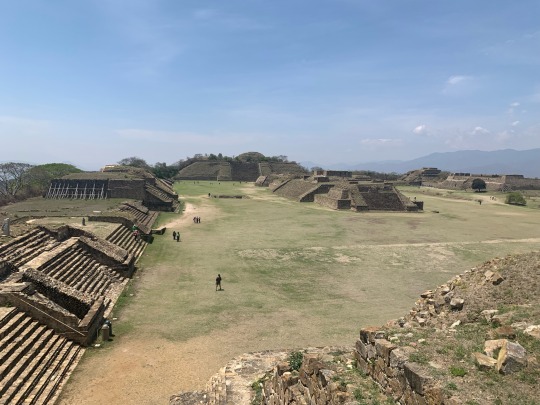




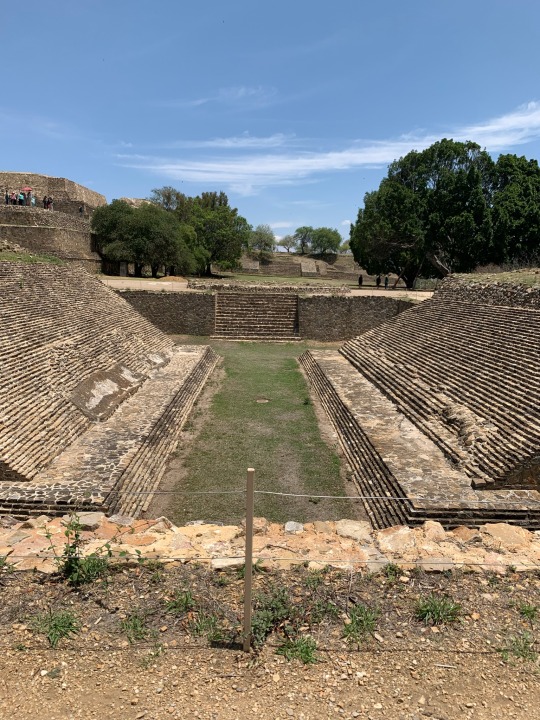

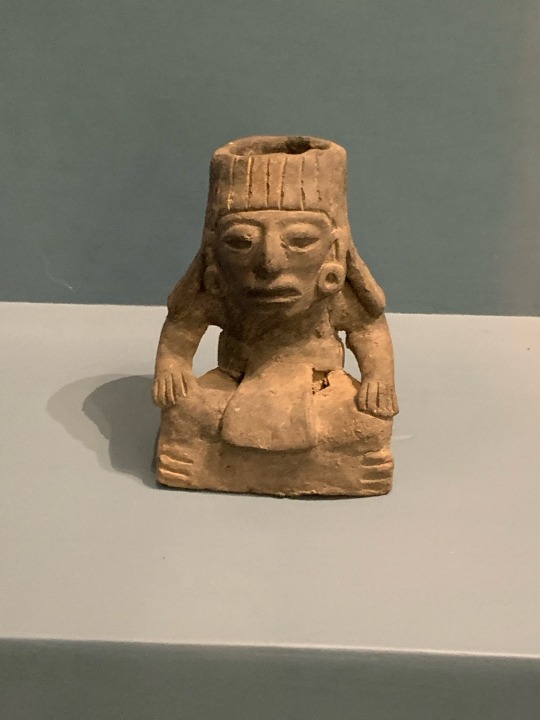
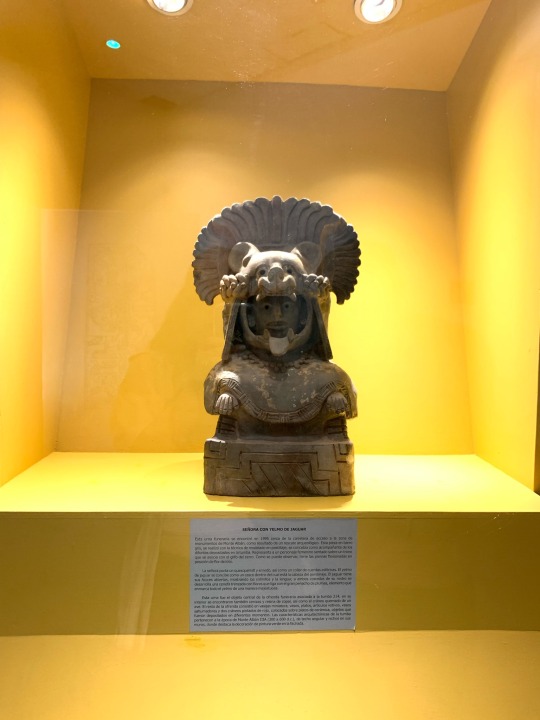
Monte Alban, Oax.
📍Oaxaca
3 notes
·
View notes
Photo
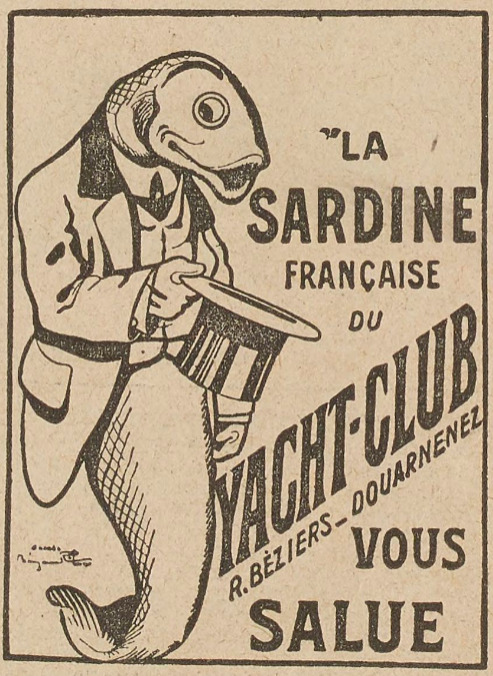





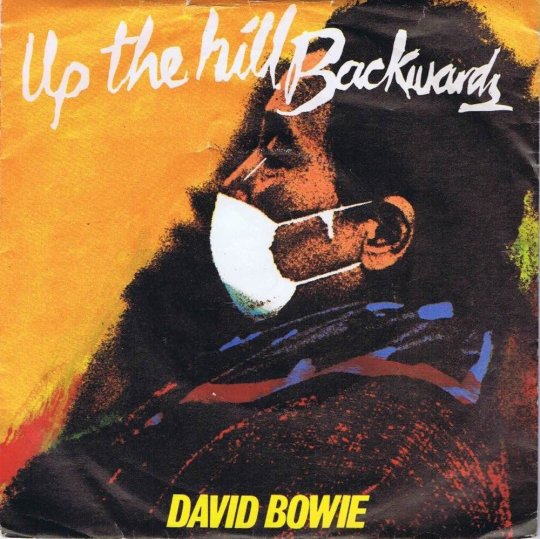

#David Bowie#Monte Albán#Fashion#Up the hill Backwards#cyclops#scott summers#tlatelolco#postals#scan#Ashes to Ashes#butterflies#random
7 notes
·
View notes
Text

MONTE ALBÁN
Oaxaca, México
Julio 2022
DRN
3 notes
·
View notes
Text

Os comparto una imagen de los murales de Monte Albán en Oaxaca, México y de la portada de mi libro La Historia Verdadera de los Hijos del Sol. Si os gustan la historia, la arqueología y la antropología os invito a leerlo, en él narro mis experiencias en muchas ciudades prehispánicas de México, Guatemala y Belice.
Para más información sobre este libro entra en este enlace: https://chicosanchez.com/blog/f/la-historia-verdadera-de-los-hijos-del-sol---enlaces-directos?blogcategory=Libros
#chicosanchez#libros#hijosdelsol#historiaverdadera#mitología#arqueología#mexico#chico sanchez#españa#periodismo#fotografía#cultura#literatura#Monte Albán#Oaxaca#México
0 notes
Photo

Juego de Pelota
Ball Court, Zona Arqueológica de Monte Albán.
Zapotecan, ~100 AD
31 notes
·
View notes
Text

Monte Albán, Oaxaca, Mexico
89 notes
·
View notes
Text
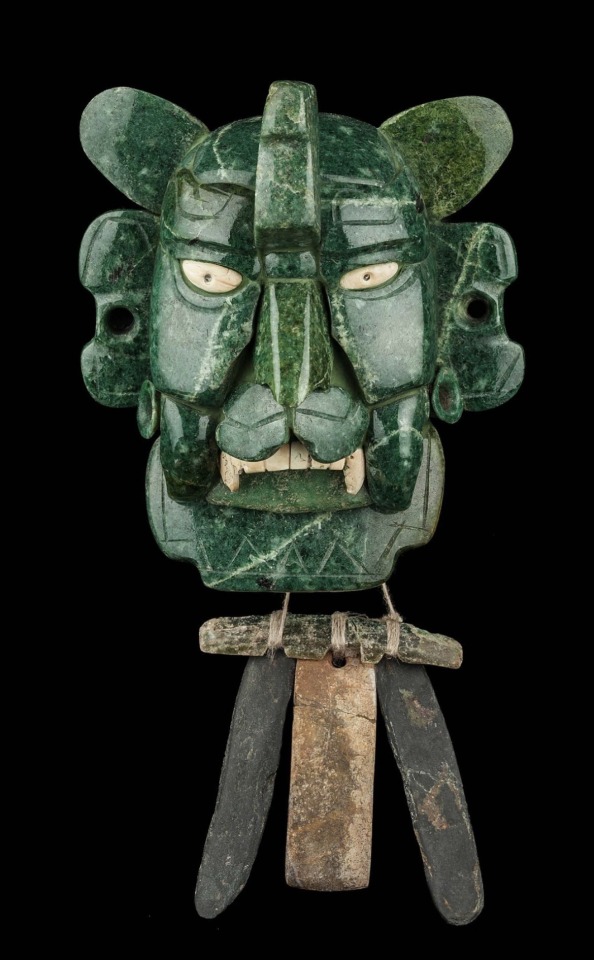
Zapotec mosaic mask that represents a Bat god, made of 25 pieces of jade, with yellow eyes made of shell. It was found in a tomb at Monte Albán
via: Wikipedia
48 notes
·
View notes
Text



Sade for “Soldier of Love” shot in the Aztec ruins of Monte Albán by Sophie Muller (2010)
22 notes
·
View notes
Text

Day 3 @tolkienlatamandcaribbeanweek (Elves): Ben 'Zaa Vanyar
Ben 'Zaa are an indigenous people who live mostly in Oaxaca, Mexico. They are also known as Zapotec. Ben 'Zaa is the pre-hispanic name meaning cloud people, which made me think of Vanyar living on the slopes of Taniquetil, so here are Findis and Indis.
Part 10 of toi's indigenous tolkien series
[image description: one woman sitting and one woman standing, their dresses have traditional flower patterns. behind is stone ruins (Monte Albán, ancient Ben 'Zaa site) and rows of words in gold and black. Words are Vanyar, Valmar, Taniquetil, Cloud People, Ben 'Zaa. At the bottom is text on fluffy white backgrounds, says 'Cloud People' and 'Ben 'Zaa'. end image description]
#findis#indis#vanyar#silmarillion#tolkien women of colour#latam + caribbean tolkien#indigenous americas tolkien#moodboards and edits#toi's indigenous tolkien series#toi's creations#tolkienlatam&caribbeanweek#contains image description
95 notes
·
View notes
Text
I’m sure everyone’s a bit Davos’d out, but as I read the WEF and Ukraine news this week, I couldn’t help but connect the WEF ideology to Europe’s self-immolation. It’s also interesting to contrast WEF ideas for societal organization to those laid out in today’s piece from Linda M. Nicholas and Gary M. Feinman who argue what made the ancient city Monte Albán so long-lasting and broadly successful was its relative equality in lifestyle, its collective action, and localized economic production.
A commonly asked question ever since NATO’s war against Russia in Ukraine really kicked off last February is why on earth would Europe go along with the American neocons in their policies that are driving Europe towards deindustrialization and a long-lasting energy crisis while the US reaps the rewards in LNG exports.? After all, these are some of the same countries that said no to Iraq and watched Washington bungle that job, as well as Afghanistan and its regime change efforts in Syria. From Wolfgang Streeck:
This makes it all the more amazing that European countries should, apparently without any debate, have so completely left the handling of Ukraine to the United States. In effect, this represents a principal turning the management of his vital interests over to an agent with a recent public record of incompetence and irresponsibility.
Could European leaders not see that the Ukrainian proxy war plan was a shortsighted one that would decimate their economies? Politico reported the following last week:
At their final summit of 2022 in December, EU leaders insisted they had heard the call. The meeting produced an instruction to the European Commission to rapidly draw up proposals “with a view to mobilizing all relevant national and EU tools” to address the dual energy and competitiveness crises hitting European industry. The issue is due to dominate an EU leaders’ summit scheduled for February 9-10.
Did it truly take European leaders 10 months to come to grips with this fact? Or is it possible that they simply not care? Davos is a reminder of these leaders’ vision of the world, which is encapsulated by the WEF and its idea of a trans-national capitalist elite. National industry is an outdated concept to them, and Russia represents an existential threat to their ideology of oligarchic rule. The WEF essentially acts as a capitalist and war consulting firm and a gigantic lobby. Diana Johnstone, former press secretary of the Green Group in the European Parliament, writes:
[The WEF] is powerful today because it is operating in an environment of State Capitalism, where the role of the State has been largely reduced to responding positively to the demands of such lobbies, especially the financial sector. Immunized by campaign donations from the obscure wishes of ordinary people, most of today’s politicians practically need the guidance of lobbies such as the WEF to tell them what to do.
On top of such guidance, the WEF Young Global Leaders program helps spread this slime throughout the European halls of power. Here’s a list of those I could find who are currently in European government or other notable positions, and there are no doubt many more:
Alexander De Croo, prime minister of Belgium
Emmanuel Macron, president of France
Sanna Marin, the Finnish prime minister
Annika Saarikko, FInland minister of finance
Annalena Baerbock, German foreign minister
Amélie de Montchalin, French minister for the environmental transition and territorial cohesion
Tomas Pojar, Czech foreign minister
Virginijus Sinkevičius, European commissioner for the environment
Eva Maydell, member of the European Parliament from Belgium; her big priority is pushing a digital single market
Leo Varadkar, the Irish Taoiseach
Lea Wermelin, Danish Minister for the Environment
Greek Prime Minister Kyriakos Mitsotakis was only nominated for a WEF global leader of tomorrow spot, but he’s been trying to prove his worth ever since.
Chrystia Freeland, she’s deputy prime minister of Canada, but included here because of her synergy with Victoria Nuland and her fascist goals abroad, especially in Ukraine
Kalin Anev Janse is the Chief Financial Officer and Member of the Management Board of the European Stability Mechanism, which works to force austerity and privatization onto eurozone countries.
Klaus Regling, who was head of the European Stability Mechanism from its inception in 2012 until last year.
Dr. Katarzyna Pisarska, the Founder and Director of the Visegrad School of Political Studies, which brings together young politicians, civil society activists, journalists and civil servants from the countries of the Visegrád Group. You might know the Visegrad Group from its Twitter account Visegrad24 that celebrates certain elements of Ukraine’s military:
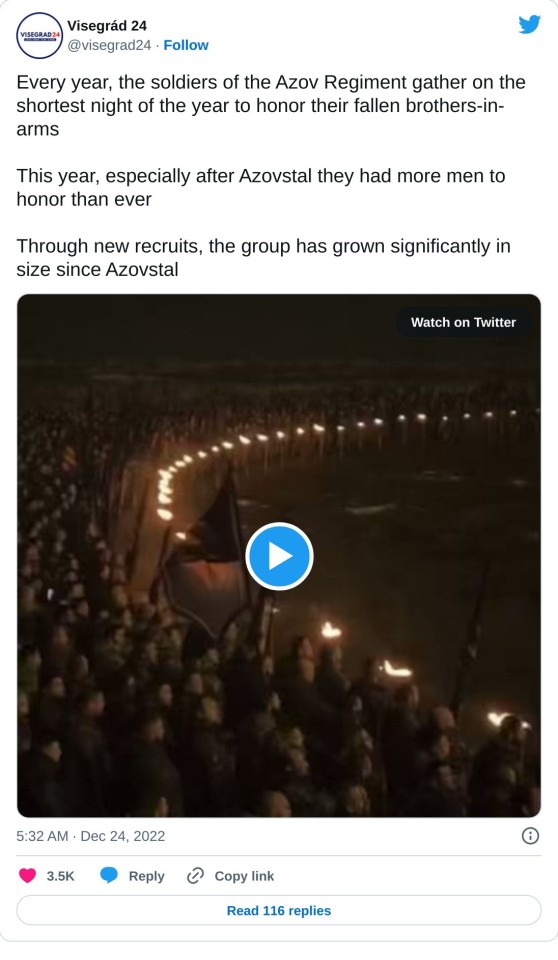
And there are hundreds more young global leaders in finance, NGOs, media, academia, and lower levels of government, almost all of them working hand in glove to realize their common beliefs that are generally neoliberal, corporatist, undemocratic, and exhibit a disdain for the working class. Do these “global leaders” really care if what’s left of their countries’ industry needs to be relocated to the US or elsewhere? After all, to them national sovereignty is outdated. As Thomas Fazi writes at Unherd:
Samuel Huntington, who is credited with inventing the term “Davos man”, argued that members of this global elite “have little need for national loyalty, view national boundaries as obstacles that thankfully are vanishing, and see national governments as residues from the past whose only useful function is to facilitate the elite’s global operations”.
The “Davos man” also believes that the working class will soon be replaced by Artificial Intelligence. He has been outsourcing jobs for years, and thinks further deindustrialization will help the green transition. Johnstone describes how the WEF-influenced Greens in Germany want to remake the country’s industry:
The Greens have not forgotten the environment, and see “climate neutrality” as the “great opportunity for Germany as an industrial location.” The development of “climate protection technologies” should “provide impetus for new investments.” Their program calls for creation of a “digital euro,” secure mobile “digital identities” and “digital administrative services.”
Indeed, the Green economic program sounds very much like the Great Reset advocated by the World Economic Forum at Davos, with a new economy centered on climate change, artificial intelligence and digitalization of everything.
Here is Young Global Leader and current German foreign minister from the Green Party Annalena Baebock explaining why she doesn’t listen to Germans’ concerns over job losses or freezing to death:
Vladimir Putin was also a WEF Young Global Leader. Here’s Klaus Schwab, the founder and executive chairman of the WEF and man with the plan to discard rule by the people in favor of rule by corporate interests, bragging that Putin was a member of his Young Global Leaders program:
youtube
They don’t advertise that so much anymore, as Putin became a traitor to the WEF cause. Russia was a major topic of discussion at this year’s Davos gathering, which was themed “cooperation in a fragmented world,” by which they mean the world is now fragmented due to Russia and China’s refusal to bend the knee. Both Moscow and Beijing represent an existential threat to the WEF ideology because as Michael Hudson has explained time and again, the true battle being waged is between financial oligarchy on behalf of the Davos crowd and a mixed public-private economy in places like Russia, China, and elsewhere in the global south.
The fragmentation of western societies was not on the agenda, but European polls clearly show a break.
In the EU Key Challenges of Our Times autumn poll, 70 percent of working class respondents believe the war in Ukraine has had serious financial consequences for them personally; only 49 percent of upper class respondents believe the same. Forty-five percent of working class respondents are satisfied with the EU involvement in Ukraine; 71 percent of the upper class is.
These numbers are remarkable when considering the unprecedented propaganda campaign in Europe. As Wolfgang Streeck puts it in New Left Review, in Germany any questioning of the war is silenced even as the threat of nuclear annihilation grows:
Those disposed to undertake a close reading of the public pronouncements of the governing coalition of the willing can recognize traces of debates going on behind the scenes, over how best to prevent the Great Unwashed getting in the way of what may be coming to them. On 21 September, one of the chief editors of FAZ, Berthold Kohler, a hardliner if there ever was one, noted that even among Western governments ‘the unthinkable is no longer considered impossible’. Rather than allowing themselves to be blackmailed, however, Western ‘statesmen’ have to muster ‘more courage… if the Ukrainians insist on liberating their entire country’, an insistence that we have no right to argue with. Any ‘arrangement with Russia at the expense of the Ukrainians’ would amount to ‘appeasement’ and ‘betray the West’s values and interests’, the two happily converging. To reassure those of his readers who would nevertheless rather live for their families than die for Sevastopol – and who had hitherto been told that the entity called ‘Putin’ is a genocidal madman entirely impervious to rational argument – Kohler reports that in Moscow there is sufficient fear of ‘the nuclear Armageddon in which Russia and its leaders would burn as well’ for the West to support to the hilt the Zelensky view of the Ukrainian national interest.
The peoples’ lack of support to “die for Sevastopol” is similar to their unwillingness to go along with plans to destroy their lives and enslave them to a techno-capitalist system of exploitation, which is perhaps why plans like this are being floated:
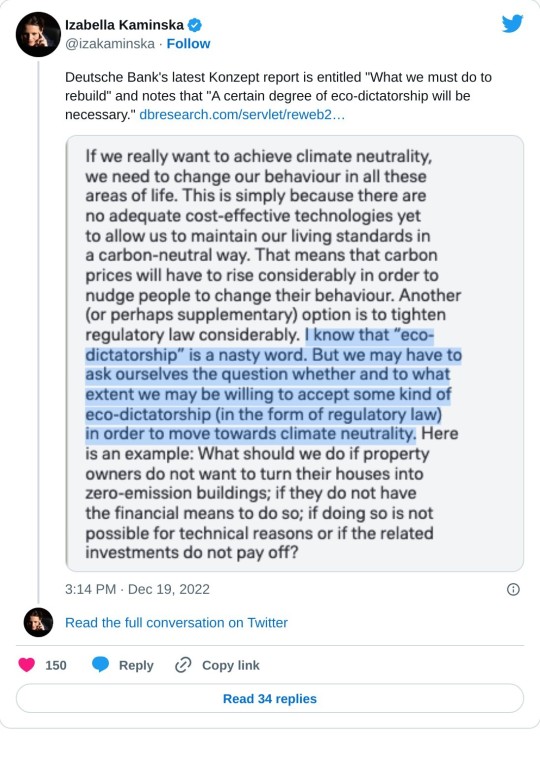
European polls show major divergence on labor issues, such as 52 percent of the working class rating fair working conditions as the most important to the EU’s social and economic development. Only 30 percent of the upper class feels the same way. And 66 percent of the EU working class feel their quality of life is getting worse; only 38 percent of the upper class feel the same way.
One need look no further for fragmentation between the WEF elite and working stiffs than Young Global Leader and French President Emmanuel Macron who is treated like royalty in Davos while back in France he’s faced nearly four years of gilets jaunes protests against his austerity and neoliberal policies, and some French can’t bear the sight of him:
youtube
And another:
youtube
They rolled out Henry Kissinger at Davos so he could tell the .001 percent they’ve been right all along about Ukraine, and they should now double down by rushing the country into NATO. The 99-year-old apparently wants to add to his 3-4 million body count before he kicks the bucket. As Spencer Ackerman writes:
The elite of the World Economic Forum consult one of the architects of today’s world to guide them out of the polycrisis he played a role in creating. And he inevitably reinforces the convictions of this same class, who most benefit from the way the world currently is, that they and they alone hold the keys to responsibly guiding the world out of the polycrisis. And if they further extract wealth from the wreckage of a polycrisis-wracked world, who’s to say there’s anything wrong with that? Certainly no one at Davos.
Even if these like-minded leaders lay waste to Europe, they probably think they can follow in the path of one of the WEF Young Leader trailblazers: former British Prime Minister and war criminal Tony Blair. After he left government he began “operating a dizzying, and often overlapping, web of charities, firms, and foundations that have catapulted him to the status of one of Britain’s wealthiest people.”
He travels around giving interviews warning against the dangers of populism and free public services – a task that is no doubt more difficult with Jeffrey Epstein’s “Lolita Express” no longer offering him free rides.
The problem is that before these people can cash in à la Blair, they just might get us all killed first. As Patrick Lawrence wrote at Consortium News after Angela Merkel’s (another WEF Global Leader for Tomorrow) revelations that the Minsk Accords were simply a ruse intended to buy time for Ukraine to prepare for war:
A measure of trust was essential between Washington and Moscow even during the Cold War’s most perilous passages. The Cuban Missile Crisis was resolved as it was because U.S. President John F. Kennedy and the Soviet premier, Nikita Khrushchev, were able sufficiently to trust one another. This trust no longer exists, as Putin and other Russian officials have made clear in responding to publication of the two German interviews.
Moscow and Beijing have said repeatedly since Joe Biden assumed office not quite two years ago that there is no trusting the Americans. The follow-on thought is that there is no point negotiating with them in a diplomatic context. For various Russian officials, from Putin on over and down, Merkel’s revelations seem grimly to have confirmed these conclusions.
It is a major turn that Moscow now includes the Europeans, and especially the Germans, in this assessment. Germany now tells the lies of which the American empire is made — a matter of anxiety and sadness all at once. If scorched-earth diplomacy is a fitting name for what the West has been up to in its dealings with Russia since 2014, as I think it is, the German bridge between West and East has been burnt.
The gravity of these conclusions, the implications as we face forward, are immense for the West and non–West alike. A world replete with hostilities is one we all know. A world devoid of trust and talking will prove another matter.
#world economic forum#davos#davos world economic forum#davos man#ukraine conflict#world war 3#WEF#Youtube
28 notes
·
View notes
Text

Rafael Pérez Siliceo, Edificio J en la zona arqueológica de Monte Albán
Oaxaca
2 notes
·
View notes
Text
weekly reading list
things i've read this week i found interesting.
In Syria, the West’s Humanitarian Claims Crumble to Dust by Jonathan Cook: as the death toll from the earthquakes hitting Syria and Turkey exceeds 46 thousand lives, don't forget that the people of Syria have been living under the collective punishment by western powers choking them with sanctions. humans can't control forced of nature but the amount of damage and human sufferings is entirely political (as it appears in Turkey infrastructure was compromised by corruption)
The Foundation of Monte Albán, Intensification, and Growth: Coactive Processes and Joint Production: authors Linda Nicholas & Gary Feinman propose their hypothesis about egalitarian, collective "good" governance in Oaxaca valley settlements.
Surveillance Capitalism by John Bellamy Foster & Robert W. McChesney: outlines the history of cooperation between USA government and private companies to present issues of surveillance capitalism.
Of Flying Cars and the Declining Rate of Profit by David Graeber about creativity, innovation and imagination.
The Case for Free-Range Lab Mice by Sonia Shah: a long-overdue discussion about the limited benefit of using lab animals in biological & medical research. the questions about this practice are not only ethical, but practical.
The Evolution of Meaning – from Pragmatic Couplings to Semantic Representations: author Kevin Mitchell writes about the distinction between deriving pragmatic and semantic meanings, and proposes evolutionary theory about their development.
Three Ideas from Linguistics that Everyone in AI Should Know by Gary Marcus and Elliot Murphy: large language models don't in fact, use language, at least not as humans use it. they merely spit out words & phrases that are statistically likely to be next; the author of this article focuses on 3 key elements of language that are absent from LLMs: reference, cognitive models and compositionality.
Africa's Forgotten Colony in the Sahara by Paweł Wargan: from European imperialism, to Moroccan nationalist interests and the greed of multinational mining corporations, this articles introduces a bit of the modern history of Western Sahara and the plight of the Sahrawi people.
The Carbon Triangle: analysis by Jeremy Wallace who identifies interactions between three major economic actors in contemporary China: finance, land and real estate, and how they impact the environment.
interview with Clara E. Mattei, the author of The Capital Order: How Economists Invented Austerity and Paved the Way to Fascism
Inside Google’s Quest to Digitize Troops’ Tissue Samples: James Bandler answers the question: what's more creepy than the US' DOD's largest collection of human tissues going back over a century? reply: Google wants to make money off it.
Lever News covering the catastrophe that is US rail, in the name of profiteering, from Rail Companies Blocking Safety Rules, Biden DOJ Backing Norfolk Southern’s Bid To Block Lawsuits, all this after they screwed overworked rail workers for daring demanding more than one (1!!) single day of paid sick leave per year, amid rail companies high profits and terrible working conditions.
#syria#archeology#political science#anthropology#capitalism#surveillance#research#linguistics#cognitive science#imperialism#norfolk southern#google#economy#reading list#readings#r/#monthly review#surveillance capitalism#phenomenal world#AI#LLM
9 notes
·
View notes
Text
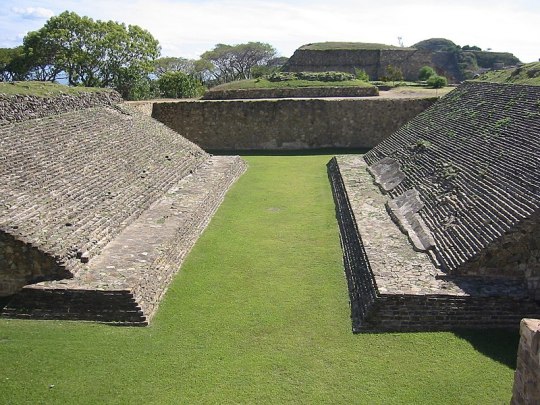
Cancha mesoamericana de juego de pelota en Monte Albán
3 notes
·
View notes
Text




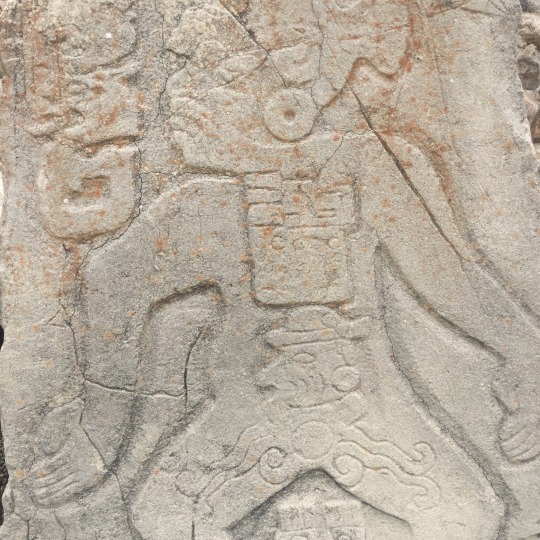




MONTE ALBÁN
Oaxaca
2022
DRN
1 note
·
View note
Text


En mi libro La Historia Verdadera de los Hijos del Sol analizo el simbolismo de los murales de la antigua ciudad de Monte Albán, en Oaxaca, México. Ya disponible en papel, pdf y kindle. Enlaces para comprar desde España:
Blanco y negro tapa dura: https://amzn.eu/d/aFIpDW8
Blanco y negro tapa blanda: https://amzn.eu/d/cyPKYoC
Color tapa dura: https://amzn.eu/d/0LE0W2Q
Color tapa blanda: https://amzn.eu/d/2mY9hVq
Kindle: https://amzn.eu/d/cdbCmM1
PDF: https://chicosanchez.com/libros/ols/products/xn--la-historia-verdadera-de-los-hijos-del-sol-de-chico-snchez-bzexn---versin-digital-pdf-rcc
Desde el resto de países os recomiendo hacer una búsqueda en la página de cada país.
Gracias por compartir.
#libros#en español#monte albán#libros recomendados#mural#mexico#museo nacional de antropología#fotografía#hijos del sol#historia verdadera#mitología#religión#simbología
0 notes